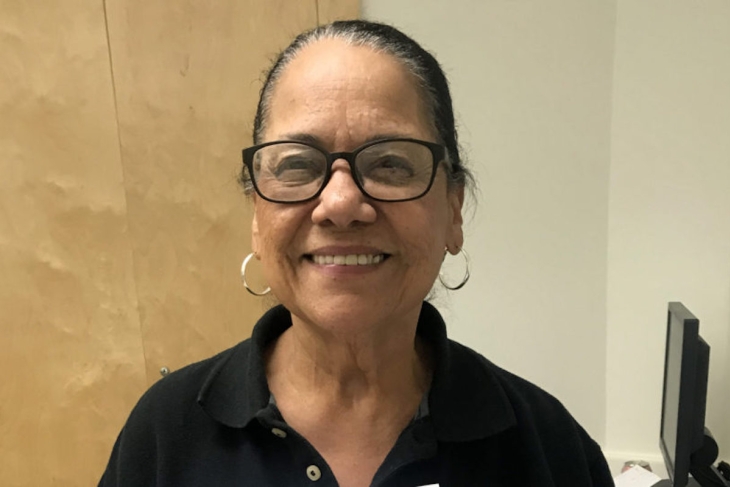Editor’s note: This blog post was first published by Partnership Schools.
As schools have rolled out their approaches to distance learning, most of the attention has been focused on how teachers have flipped classrooms or leveraged technology in new ways to drive learning. Those stories are important, but they paint an incomplete picture. There are equally important stories about how teachers are staying true to the practices and habits that were hallmarks of their classroom instruction.
For students who are reeling from the coronavirus shutdown, bringing some familiar elements of in-class instruction to distance learning is as comforting as it is effective. And we want to shine a spotlight on one of our veteran teachers who came into her own when she realized that adapting her instruction didn’t have to mean giving up the heart and soul of what made her classroom teaching so effective.
Zoraida Hernandez is the middle school English teacher at Mt. Carmel-Holy Rosary—and this is her forty-seventh year teaching in Catholic schools. She’s also one of the most effective literature teachers in the network and, no doubt, far beyond it. Mt. Carmel-Holy Rosary has been with Partnership Schools for seven years, and for each of those seven years, Zoraida’s students have posted some of the highest achievement gains of any class in the network.
If this is beginning to sound like a love story, that’s because it is. In short: Both because of her passion and her results, Zoraida is a transformational educator.
When it comes to teaching literature, Zoraida grounds each lesson in three principles that ignite a love of reading in her students and help them unpack and understand the rigorous texts they read in class.
First, Zoraida puts rigorous text at the front of each lesson.
Even virtually, Zoraida’s lessons are text-centered and discussion-based. As just one example, watch this moment where she pushes students into the deep, metaphorical meaning of a line from Ray Bradbury’s science fiction short story “There Will Come Soft Rains.” Notice how she re-reads a set of key lines that are critical in developing the story’s themes.
“Somebody talk to me about those two lines,” she says. “They are wonderful, quite literary.” She reads them again. “What is it saying?”
Second, Zoraida uses her infectious love of literature to ensure every student is fully engaged and making meaning out of even the most challenging texts.
Watch here as Zoraida’s passion for the text translates through the screen and continues throughout the lesson. “This part I absolutely love. Oh my goodness. I got so excited about it,” she effuses.
In fact, if you ask for her secret, Zoraida will shoot you a wry, half-concealing smile and say something painfully matter of fact, like: “Oh, you know… I just love great literature! And I love reading it with kids. And I make sure everybody does the work. That’s it!”
But the reality is that her love for literature is only part of the story. Zoraida is also zealous in acknowledging her students’ contributions. And this is something she brings to her virtual lessons. When a student voice tentatively offers the response, “Humans versus nature?” and Zoraida exclaims, “Nature! Who’s talking to me?” After Juliette identifies herself, she gets a “Juliette! Great! Right!”
And exactly as happens in her live classroom, Zoraida pushes to maximize participation. “How does nature feel about humans? I need other people answering here!” she says. And then she calls out names she sees are present in the Zoom meeting but quiet in the conversation—eliciting the response she seeks.
In fact, there have been times when I’ve found myself so engaged in her classroom discussions that my inner-middle schooler begs to boot one of the kids from the front row so she can slide in and impress Ms. Hernandez, too.
Finally, Zoraida puts content and vocabulary at the center of each text-driven lesson.
It’s easy to see that Zoraida delights in pouring over the language of a beautifully written text. Her students learn so much, in part, because it is impossible to sit through one of her classes without catching her contagious love for whatever the class is reading. But more importantly, she is intentional about building students’ contextual knowledge of the books they are reading, as well as the critical literary knowledge they need to make sophisticated, transferable analyses.
Throughout her five decades in education, Zoraida has surely seen it all. Now that includes teaching through a global pandemic. And while virtual teaching doesn’t come naturally to most of us, Zoraida has quickly made it her own—by realizing that adaptation doesn’t have to mean giving up what made you great to begin with.
And today, as always, we are quite simply in awe.


